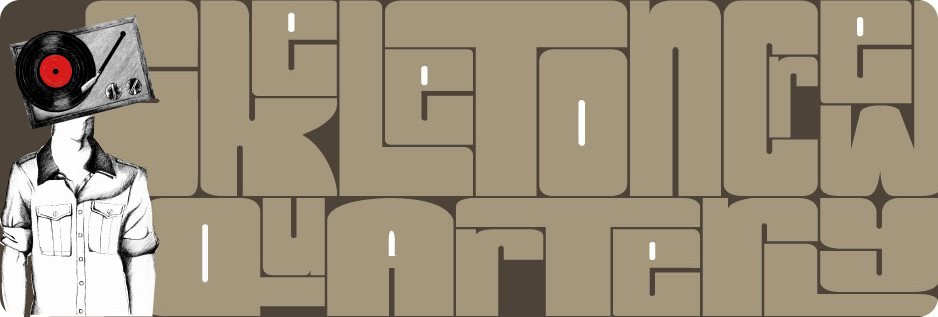
Call and Response EP
Memory Cassette
Acephale Records.
SCQ Rating: 86%
The choice of medium in music used to be about preferences. People either stood by the fuller sound of vinyl or the clear, compressed sound of compact disc, while 8-tracks and cassette tapes spiked and collapsed in popularity along the way. With the latest medium being a simple broadband connection, the internet has become a choice that divides listeners over costly RIAA laws, personal ethics and a crashcourse in general know-how. And despite online users’ ability to ruin release dates and slander each other at will, the internet is still arguably a force for good in the music world, shedding light on musicians and records on a scale that only a democracy of numbers could hoist up. Take Memory Cassette (AKA Weird Tapes, Memory Tapes, Dayve Hawk) for example; a New Jersey native who has fallen out of the blue with a slew of monikers and mystery releases. If the super-fresh beats of Call and ResponseEP don’t signal a ceasefire over the internet’s ethics, well… nothing will.
A lot of seminal acts have been name-dropped where Dayve Hawk is concerned, citing My Bloody Valentine, Boards of Canada and New Order among others, and while most of these comparisons fall flat, I heartily agree that Memory Cassette doesn’t sound like any one thing. ‘Last One Awake’ could be an early Caribou track finessed by a micro-house DJ, while ‘Surfin’ crosses M83 if he recorded for a glam-gone-right DFA. Then there’s the dramatic piano and synth-orchestra momentum of ‘Asleep at the Party’, which could belong to El Perro Del Mar although the female vocals are distorted and buried (yeah, OK – not unlike My Bloody Valentine). What keeps Memory Cassette from approaching mimicry is his lack of pretention, his clear admiration for melodious electronica that refuses grandiose arrangements or look-at-me devices. This practical yet exploratory approach brings me to Boards of Canada - Memory Cassette’s sole reasonable comparison point of the lot – which with ‘Body On the Water’ suggests the Scottish duo’s spacious psychedelia with airy keys and aquatic beats. And while Memory Cassette uses a wider palette and dynamics that would seem overt (not to mention downright shocking) on a BoC release, they are equally preoccupied with crafting then intersecting sounds. Although this EP runs a mere twelve minutes in length, the music speaks for itself.
As Memory Cassette (or any of Hawk’s other aliases) garners attention and more publications take note, this current aura of mystery surrounding his music will succumb to artist bios, interviews, all the nonsense that reeks of business. Right now, Call and Response EP is a brief but engaging slice of brilliant poptronica dropped from the infinite skies of the internet. No backstory, no press release… just stereophonic magic.
















